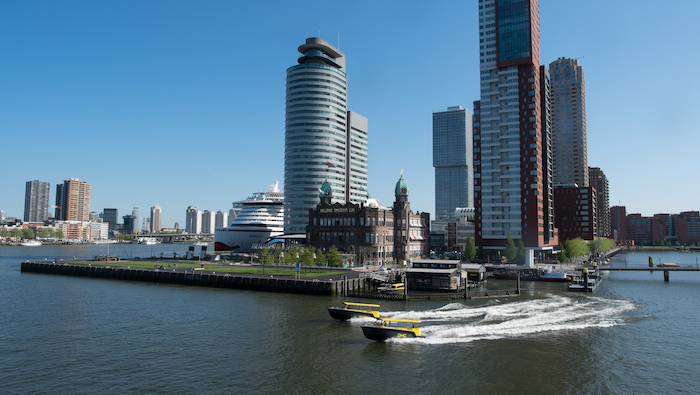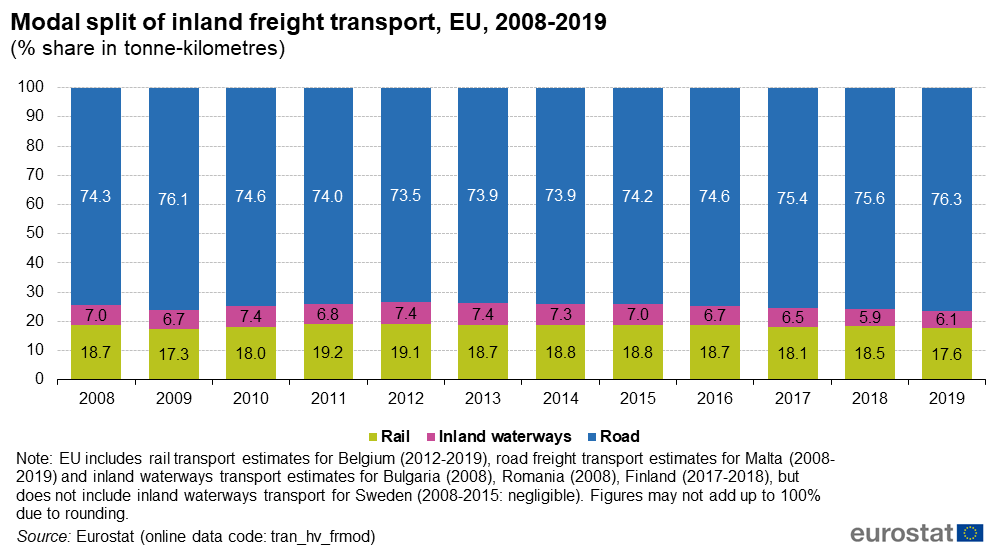About
TRiLOGy will unlock the potential of transportation and logistics in urban waterways with electric and autonomous vessels by enabling safer, more sustainable and efficient operations. In order to achieve this goal, there is a need for a joint investigation on fleet management and autonomous sailing.
Fleet management
Strategic and operational level optimization models will be developed that optimize various decisions such as fleet sizing, fleet mix as well as routing and scheduling of the vessels to meet the demand in an efficient way. A special challenge lies in the explicit representation of the stochasticity in the demand and network conditions, the adaptive nature with real-time decisions as well as the integration of behavioral models that represent the modal shift towards water. Fleet management should provide the optimized routes to the autonomy side so that data-driven navigation methods generate a safe and detailed trajectory planning.

Autonomous sailing
The autonomy side should then provide realtime congestion data so that fleet management can use the up-to-date travel times for real-time planning. TRiLOGy will develop data-driven navigation methods for urban waterways that take into account the complex dynamics of the vessel and the coordination with other traffic participants. These methods will be tested with realistic simulations and real-life experiments on different scales of vessels with the involvement of our academic and industrial partners.
The autonomy side provides real-time data on congestion and travel times to fleet management for real-time optimization.
Motivation
Waterways have the biggest potential in transportation in terms of sustainability as they imply only 17% of the energy consumption compared to road and 50% compared to rail. However, inland waterways represent only 6-7% of the inland freight transportation and road is still the far most used alternative. This underlines the need for a paradigm shift in inland waterways. Information and Communication Technologies (ICT) are clearly shaping road transportation with real-time data flow, efficient optimization strategies and advances in autonomous driving. This is not happening in the same pace for waterways and TRiLOGy aims to tackle this with the development of scientific methodologies to increase the efficiency, safety and sustainability of transportation and logistics over water.

Objectives
The main research question is:
What is the impact of autonomous and electric sailing on the sustainability, safety and efficiency of transport and logistics operations in the cities?
To be able to answer this question, the objectives of TRiLOGy are to:
- develop strategic level optimization models on fleet sizing, fleet mix and facility location with explicit integration of behavioral models (modal shift towards transportation over water), which enables to adapt the supply decisions to the demand response;
- develop operational level optimizations models, i.e., dynamic and stochastic multi-vehicle multi-trip vehicle routing problems for transportation and logistics over water that incorporate real-time data and future predictions, and adapt (re-optimize) the decisions in real-time;
- evaluate and validate the strategic and operational level optimization models on real data through simulation experiments for urban waterways in collaboration with our partners;
- develop data-driven navigation methods for the autonomy of vessels on urban waterways that consider the complex dynamics of the boat and the coordination with other traffic participants;
- validate the proposed methodologies for autonomy in realistic simulations and real-life experiments in collaboration with our partners.
Methodology and scientific contributions
TRiLOGy brings together interdisciplinary methodologies in order to reach its objectives. Strategic and operational level models for fleet management are critical in order to match the transportation demand with the right capacity at the right time. Developments on the autonomy side are crucial to enable a safe sailing. These fleet management and autonomy related methodologies need to interact for the success of TRiLOGy.